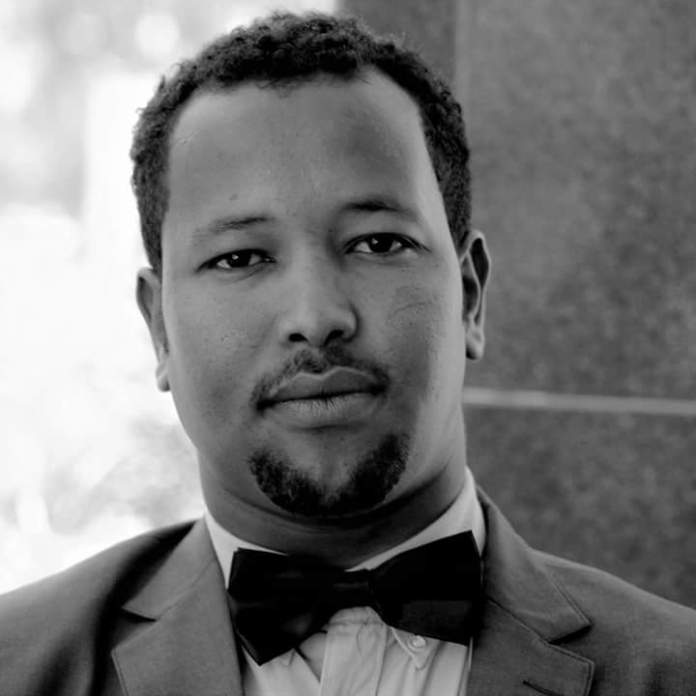Optimism is the thing that drives you forward.”—John Bielenberg, Founder, Future Partners.
Risk comes from when you not knowing what you’re doing” Warren Buffett. In Somaliland, there is an information and research gaps, which is important for the National Development in order to ensure that we made the best decisions in the use of our limited resources, for instance, if the government have been given to a 100 million aid for the improvement of the health of its society but the government didn’t know what diseases it’s people are dying most, then the government can’t made the right decisions and can’t scientifically defend decisions that it has made.
What matters most to mention is that now we don’t know any information about exactly what we die mostly if its non communicable diseases or if it’s communicable diseases, we don’t know exact figures and information about the demographics of the health care services consumers and service users.
In Somaliland currently the situation is more or less similar as above and though there is significant number of people who are dying for Non communicable diseases and its complications such as heart attacks and stroke, cancers, chronic respiratory diseases and diabetes.
Thus far there aren’t significant ongoing health projects with the focus of addressing these diseases, including healthy life style education and awareness raising on this reducing risk factors of these diseases, for the reason being that there are no figures, researches, and evident based data to support the decision of putting in our limited funds to address this diseases.
Recently, there has been the launching of Somaliland Demographic and Health Survey which is the first ever of its kind, the objective of this survey is generating accurate and reliable Demographic, Health and Socio-economic Indicators to fill the existing data gap and come up baseline for HSSP2, NPP and SDGs.
The Somaliland Health and Demographic survey (SHDS) will help the Somaliland National Statistical offices and Ministry of Health produce valid, reliable, and representative national and sub-national data on infant and child mortality, adult mortality, fertility, and birth spacing, maternal and child health indicators and gender based violence.
The main objective of the SHDS is to bridge important gap in the Somaliland statistical systems, by providing baseline health and demographic indicators for the development and monitoring of Somaliland development plan and framework which are based on the globally aimed Sustainable Development Goals (SDGs).
The magnitude of this data for the development of sound national and sub-national evidence based policy, for the effective planning of service delivery to our limited resources, while above all this is important to the monitoring and evaluation of performance by services provides and development projects and programs.
The UNFPA Somaliland office with the financial support of UKAID has supported the Ministry of Health and Planningthe implementation of Somaliland Demographic and Health Survey which will provide us the necessary data for decision making, with a sample size of 3600 households in Somaliland.
Somaliland has been suffering decades for poor health care services, but I believe the new government of President Muse has recruited the right people in the leadership of the Ministry of Health Development, who are lucky enough to show up their potentialities of improving the nation’s health sector and on the contrary they are unlucky to have the road to change which is a long way to take is waiting them ahead.
As per the Somaliland National Health Policy, 2nd edition, 2011, “Health Sector Reform is a sustained process of fundamental change in policies and institutional arrangements of the health sector, usually guided by the government. Any meaningful reform process ought to be based on evidence and information about the current state of affairs, and potential effect of alternative policy choices” and based on that any meaningful policy and institutional arrangements reform process ought to be based on evidence and proof is why the Minister of Health H.E. Dr. Hassan Ismail Yusuf, director of planning and research of MoHD Dr. Hamud, Dr. Osman from Office of Statistics of Ministry of Planning and Head of UNFPA Somaliland Dr. Adam Haybe has provided a huge input for this survey to be successfully implemented.
This survey has been also named Somali Health Demographic Survey and was covered throughout the 3 Somali zonal government administrations.
If used efficiently to the developmental programs and projects in the data produced by the survey report at the end of this survey, then a one step forward was taken to the evidence based decision making of the national developmental programs and projects, the development of national evidence-based policy, effective planning and service delivery, monitoring and evaluation of performance by service providers and development projects and programs.
The government of Somaliland as well has in place to a national development plan which is based and in line with the globally aimed sustainable development goals SDGs. Somaliland, with its limited resources is aiming to tackle down the figures of disease burden from its people, with the help of the international community, and I believe that Somaliland has a bright future a head.
Somaliland is yet unrecognized and poor but is able and willing to use its resources and attract foreign international investment so as to tackle the level of poor health, poverty and unemployment among its societies. Above all I would like to conclude that the way forward isn’t to try to stop the unstoppable (Somaliland) but the way forward is to look and search win-win solutions.
An opinion of Ahmed Suleiman Omer
+252 63 4352658







































